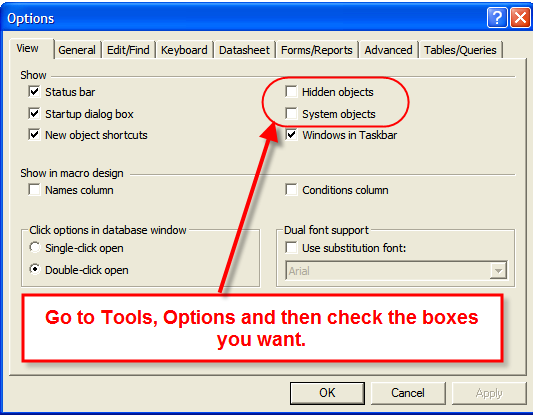Hello,
I use to write small apps in Access for multiuser enviroment and I am not satisfied with the native security possibilities of Access. I got lots of trouble with shared .mdws and such things. That's why I've decided to make my own login procedure.
BUT, to make it, I have to store user names and pws in a table in the db. I want to make a secure db, but if I store these data in a table and somebody starts the app with pressed down shift key, can see the tables and their contents, e.g passwords and then where is the security?
Does anybody have idea in connection with it?
Thanks in advance for tips and help!
VoiD
I use to write small apps in Access for multiuser enviroment and I am not satisfied with the native security possibilities of Access. I got lots of trouble with shared .mdws and such things. That's why I've decided to make my own login procedure.
BUT, to make it, I have to store user names and pws in a table in the db. I want to make a secure db, but if I store these data in a table and somebody starts the app with pressed down shift key, can see the tables and their contents, e.g passwords and then where is the security?
Does anybody have idea in connection with it?
Thanks in advance for tips and help!
VoiD

